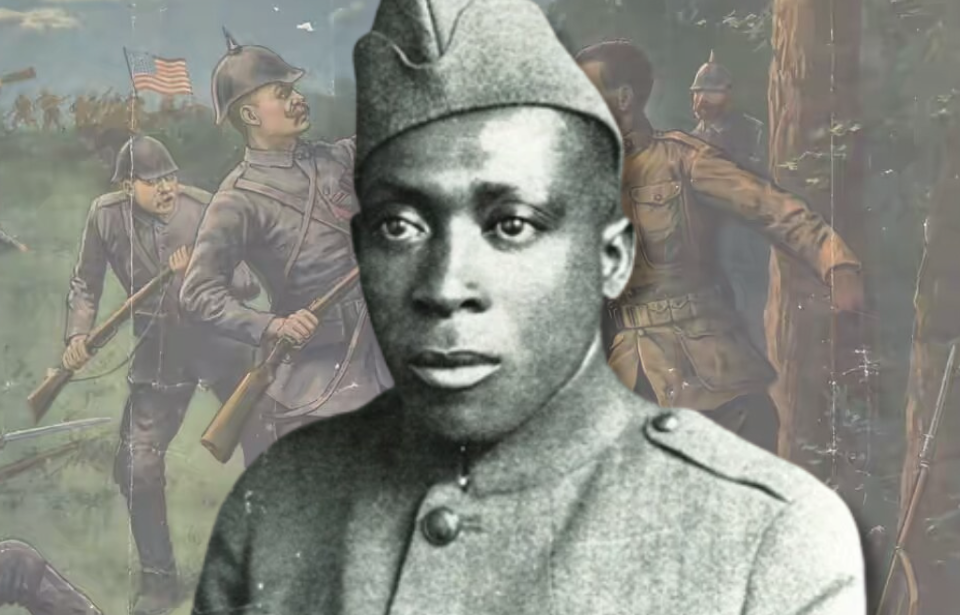Often referred to as Henry Johnson, he demonstrated exceptional bravery by fighting enemy forces in close combat and successfully rescuing a fellow soldier despite facing many obstacles.
Henry Johnson enlisted in the New York National Guard
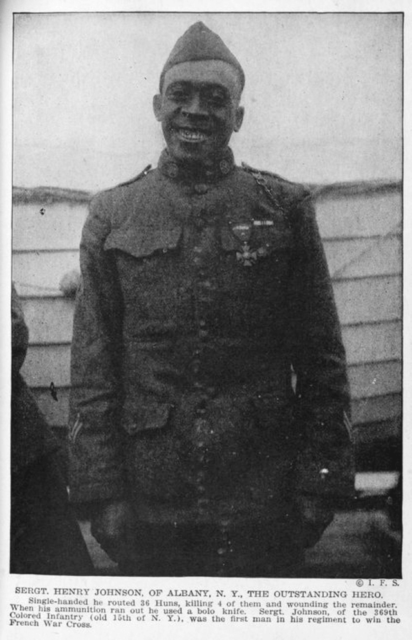
Henry Johnson’s early life remains shrouded in mystery, even to himself. He believed he was born on July 15, 1892, in Winston-Salem, North Carolina, but this is uncertain as he recorded different birth dates on various documents. As a young teenager, he worked as a railway porter, handling goods and luggage.
In mid-1917, Johnson joined the US Army upon learning that the 15th Infantry Regiment of the New York National Guard was recruiting. This regiment was famous for enlisting only Black soldiers. Johnson and his comrades were dispatched to France, arriving there in January 1918.
Assigned to the French Army’s 161st Division
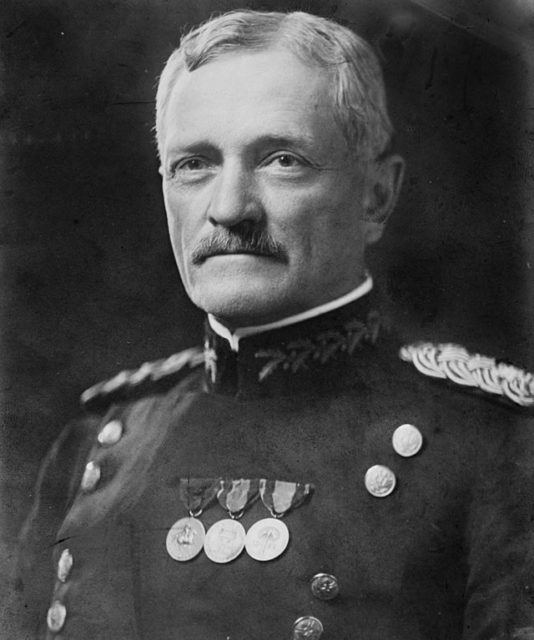
From the get-go, the eager regiment – at that point renamed the 369th Infantry Regiment and later becoming known as the “Harlem Hellfighters” – was relegated to menial tasks, such cleaning and moving goods. They were temporarily assigned to the 161st Division of the French Army by Gen. John J. Pershing. It’s believed the reason was that Pershing wanted to give African-American soldiers a chance to advance in leadership, which they couldn’t do in the segregated US Army.
The French Army had no such issue and gladly accepted the men as reinforcements, kitting them out with equipment. Johnson and his regiment were deployed to Outpost 20, near the Argonne Forest.
A nighttime raid was Henry Johnson’s chance to be a hero
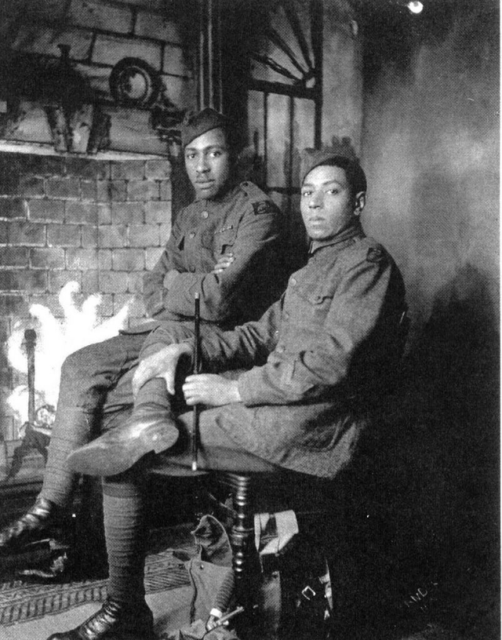
On the night of May 14, 1918, Henry Johnson was unaware that he was about to experience the fight of his life. He, along with fellow soldier Needham Roberts, were on sentry duty on the edge of the forest. Their sentry shift was due to finish at midnight.
Two soldiers approached the pair to relieve them of their watch. Johnson, quickly recognizing the young men’s inexperience, opted to stay with them, rather than leave. Roberts returned to his trench to sleep, but Johnson soon heard movement, rustling and the clipping of wire cutters.
German troops attack
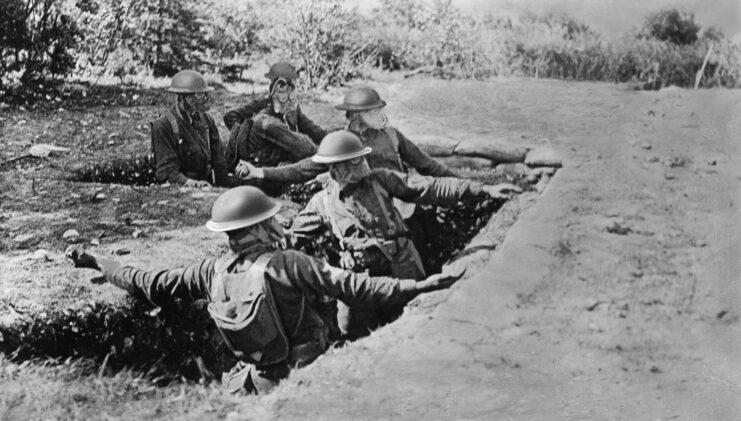
With the grenades were exhausted, Johnson began firing his rifle, sustaining injuries to his side, head, and hand. When his rifle jammed, he resorted to using it as a club to fend off the enemy.
In a desperate fight for survival, Johnson suffered a severe blow to the head. Stumbling to the ground beside his broken rifle, he stood up and drew his 14-inch bolo knife. He wielded the blade with fierce precision, killing one enemy with a single strike. Noticing the Germans attempting to drag away the wounded Roberts, he charged at them, wounding one in the ribs and forcing them to retreat.
Johnson saved him and Roberts’ lives
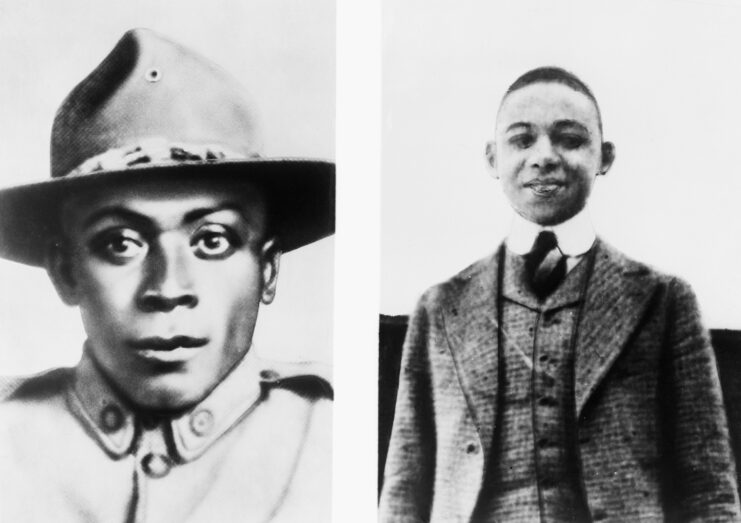
After an hour of fierce fighting, reinforcements showed up, forcing the Germans to pull back. Johnson’s extraordinary courage guaranteed that both he and Roberts made it through, with quick medical care provided for their injuries.
As the first light of dawn lit up the scene, the aftermath of the clash became visible: their wounds, their gear, and four fallen German soldiers. Johnson is said to have wounded another 25 to 30. His heroic stand quickly became the talk of the town, earning him a promotion to sergeant and the moniker “the Black Death.”
Awarded the Medal of Honor nearly a century later
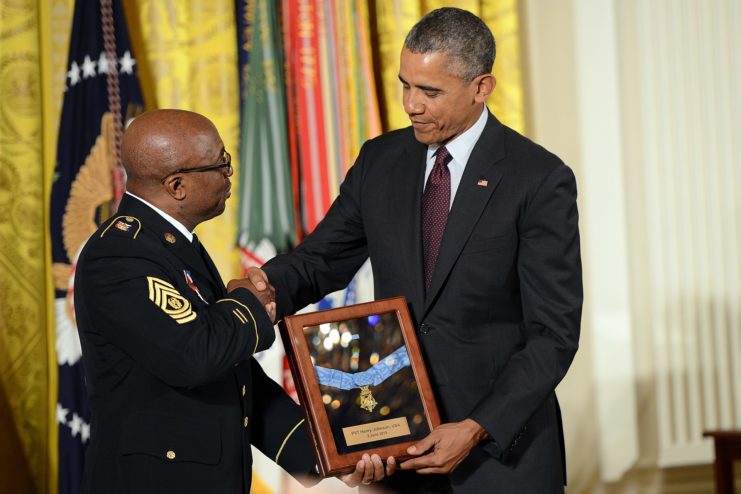
For his efforts, the French awarded Henry Johnson the Croix de Guerre, one of their highest awards, before sending him back to the US. At the end of the First World War, the Harlem Hellfighters participated in a victory parade, with Johnson upfront. Still, they were not allowed to parade alongside the White troops.
After such an ordeal, many soldiers would return home to a hero’s welcome, which Johnson did, to an extent, but it was a bittersweet achievement. Many publications quickly glossed over his race, or avoided mentioning it at all. He gave his all and returned to a country celebrating his efforts while still regarding him as an inferior citizen.
More from us: John Simpson Kirkpatrick: The ‘Man with the Donkey’ in Galipoli
New! Want to become a trivia master? Sign up for our War History Fact of the Day newsletter!
The final years of Johnson’s life mirrored the first, slipping into obscurity after the war, while receiving disability payments from the US government. It remains unclear how much his injuries affected his later life and job opportunities. He passed away on July 1, 1929 of myocarditis. The full extent of his actions weren’t appreciated until he was posthumously awarded the Purple Heart in 1996 and the Medal of Honor by then-US President Barack Obama in 2015.
